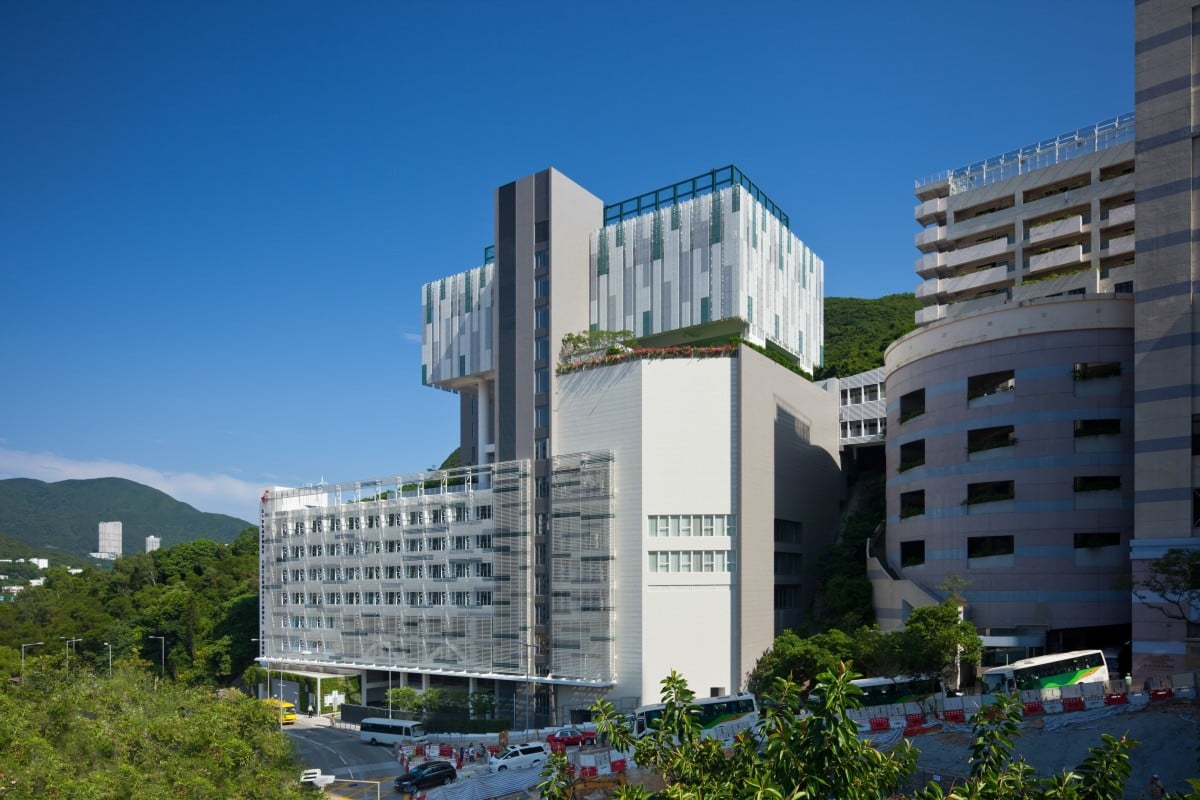IB Program
 Why the IB Diploma Programme is a good fit for Hong Kong students
Why the IB Diploma Programme is a good fit for Hong Kong students
Every parent wants the best for their children, and a strong academic background is one of the surest ways to  help prepare them for a bright future. In Hong Kong, secondary students – and their parents – can be overwhelmed by choice. There is the Hong Kong Diploma of Secondary Education (HDKSE), the standard entrance exam for the city's universities; British A-levels; and the American AP courses – each based on a particular national academic system.
help prepare them for a bright future. In Hong Kong, secondary students – and their parents – can be overwhelmed by choice. There is the Hong Kong Diploma of Secondary Education (HDKSE), the standard entrance exam for the city's universities; British A-levels; and the American AP courses – each based on a particular national academic system.
Increasingly considered above all of them, at least by the city's international schools, is the International Baccalaureate Diploma Programme (IBDP).
Photo: SIS HK Singapore International School, Secondary Section campus.
Simon Misso-Veness, deputy principal, head of English international stream K-18 at the German Swiss International School (GSIS), describes the diploma as a “global educational philosophy” that promotes “intercultural understanding and respect”.
Created at the International School of Geneva in 1968, the IBDP was intended to be a globally recognised qualification, one that would make it easier for students to acclimatise to academic systems around the world.
Today, IB programmes are available in 144 countries and the diploma is widely recognised as one of the most comprehensive curriculums available.
The IBDP, which is for students between 16 and 19 years of age, encompasses six subjects over two years. This includes a 4,000-word extended essay, a Theory of Knowledge course, which Misso-Veness describes as “critical thinking on the nature of knowledge”, as well as a series of creative and service projects. Taken together, the aim is to create lifelong learners who are active, compassionate members of society.
“The IB Diploma is grounded in a clear mission,” says Misso-Veness, “that seeks to bind the whole [academic] experience together, and is focused on developing individuals who will be equipped not just for academic life, but also for the adaptability required for productive lives in the middle of the 21st century.”
Underpinning the entire programme is the IB Learner Profile, consisting of 10 attributes that define a “contemporary, independent student”. This includes international-mindedness and multilingualism.
“Universities across the world are very keen on the IB Diploma as they know that graduates will be independent learners – critical and innovative thinkers who can operate at a conceptual level. In terms of contributing to student life, many IB graduates have a positive grounding in creative, active and service projects, which are highly valued by many universities … A successful IB graduate will have developed a range of attributes that are not only valued at university but are essential to independent study,” says Misso-Veness.
Hong Kong schools have offered various IB programmes since 1988. Of the 65 institutions that currently offer its curricula, which begins with a Primary Years Programme for children as young as three, 33 are authorised to implement the Diploma Programme.
Singapore International School (SIS) has offered the IBDP since 2011 and its students are registered across 20 different subjects. Pupils typically study three subjects at a higher level and three at a “standard” level.
Student council president Justine Chan Tin-nok feels the challenging programme has prepared her well for university: “Doing it was a good blend of diving deep and swimming wide, allowing me to maintain a breadth and depth of interest. This gave me the flexibility to apply to universities in various countries around the world who might prioritise different academic learning styles.” Chan speaks with some authority, having received an offer to begin studying medicine at Cambridge in September.
“Personally, the IB Diploma has helped me to foster good habits and time management skills while pushing me to become more resilient and focused,” says Alex Yu Shing-chun, who has an offer from Yale University. “There were so many things I thought were 'impossible' when I started my IB Diploma journey. Now that I'm on the other side, I feel proud and am more confident that I can do anything I put my mind to.”
One notable difference between the IB Diploma and other curricula is its emphasis on critical thinking and independent research skills. Students in this programme aren't taught to memorise and repeat (a common criticism of the Hong Kong education system is that it leans towards rote learning and standardised testing). Instead, IBDP students are encouraged to think freely and analyse, creating their own conclusions based on research and evaluation – skills that will serve students well throughout their lives.
“I think that IB has really helped to make me more of a global thinker,” explains Kristy Chan Tin-wing. The co-president of SIS's Community Council offers her economics coursework as an example. “I really had to keep up with current affairs and keep an eye on the news to stay relevant and informed. IB helped me to really look at it with a more analytical eye and form my own opinion on what's happening around the world.”
Having completed the rigorous two-year course, Chan reflects positively on the experience. “It's a tough programme, but definitely worth it. I've learned so much. I think I'm a better student, a better leader and a better citizen for it.”
Though there are myriad benefits to be gained from the IB Diploma programme, it is intentionally demanding and Misso-Veness admits that it is not a fit for every student. “There are excellent academic programmes, such as A-levels and HKDSE, which will also get you to where you want to go.”
But for those who are ready for the challenges, he believes the IBDP will prepare them for future study, and beyond: “The IB Diploma prepares [pupils] for university and helps them appreciate the complexity of the world while acknowledging their shared guardianship of the world and its resources for future generations.”
Source: South China Morning Post - SCMP
If you would like to know more about IB and would like to change from local school to international school and need our assistance, please feel free to contact us at 3182 6925.

經濟學
經濟學 我們現在除了為學生準備設有英語、數學及中文科目增進課程準備面試外,成功進入了國際學校的學生,也繼續在我們中心上課,包括英語及 IB A level 數學 現在開設 IB Diploma 、IGCSE 及GCE A-level 經濟學科,由15多年資深經濟講師任教。 如有興趣為自己的學科提升更高分數準備入
Read More
釋放孩子的潛力:取得 A-Level 卓越成績並進入頂尖大學
有否為孩子每天忙碌地做功課而煩惱? 如想轉入國際學校,現在是時候可以考慮多種類型課程: IGCSE A-Level IB PYP / MYP / AP 加拿大課程 可以將你孩子的情況跟我們傾談, 我們也會因應個別情況作出分析, 以及安排評估(選擇
Read More
家長心聲
李小姐的兒子 Derek,為家中獨子,性格比較自我和被動,沈迷打遊戲機,再加上原本就讀的學校是以開放式環境授課,更令Derek經常無法集中精神上課,缺乏對讀書的興趣,令成績每況愈下。 自從 Derek 參加了教育階梯為他安排個性化英文培訓課程後,使他對上課重拾興趣,有了積極改變,慢慢喜歡跟我們的外籍導師分享,變得開朗主動,這也令他運用英語能力上有著顯著的進步。
Read More
家長心聲
家長心聲 小女因於本地學校就讀感到壓力,本身對於國際學校零認識的我,開始上網尋找教育中心的資料,聯絡了幾間教育中心後,只有教育階梯以電話直接聯絡我,細心講解中心的服務,並相約我到中心了解女兒的情況,並給予意見。 聽畢我們的教育顧問詳盡的講解後,我立即決定參與中心的投考4所學校的服務。過程中,更參與中心內的一對一英文、數學及面試班,大大增強女兒投考國際學校
Read More
中學國際學校教育展
由SCMP舉辦的中學國際學校教育展Secondary School Education Event 於6月11日假金鐘JW萬豪酒店舉行 是次活動, 南華早報邀請了英基(愉景灣) ESF (Discovery Bay), 法國國際學校(French International School) , 弘立書院(ISF Academy)校長與大家分享報讀國際學校的要求及例
Read More
Invictus School 校長專訪
香港作為一個國際化大都市,每一位家長都希望孩子能成為一位具競爭力、適應力和具國際視野的人材。 因此, 入讀國際學校, 成為眾多家長的不二之選。 近年,多所國際學校相繼在香港創立, 為了加深家長對國際學校的認識, 教育階梯特別專訪Invictus, 一家位於將軍澳(小學) 及柴灣(中學)的國際學校。邀請校長暢談他們的辦學目標和理念, 了解國外的教育系統,特別是中學, 以便子女銜接
Read More






